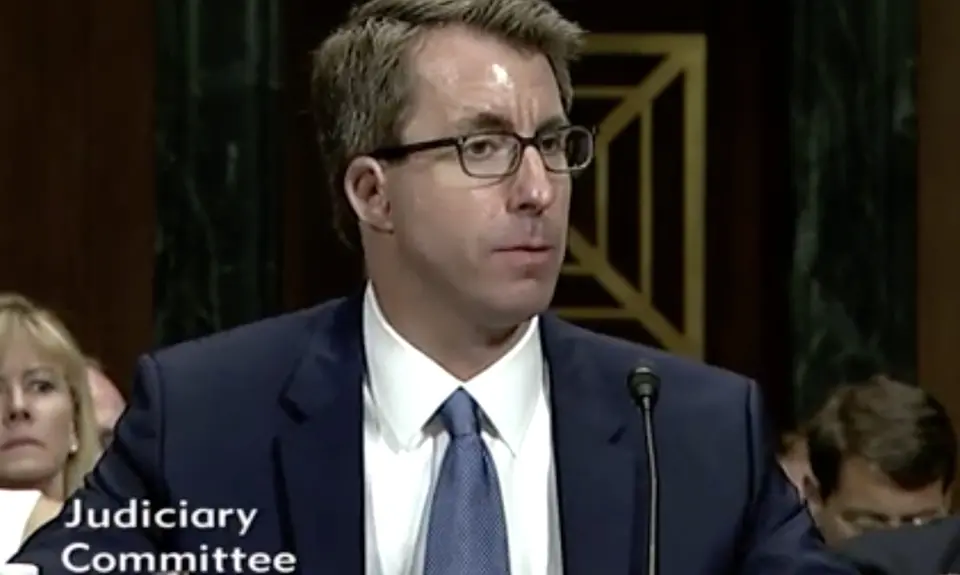In a shocking collection of writings for the Stanford Review, Ryan Bounds, Trump’s nominee for the Ninth Circuit Court of Appeals, reveals a deplorable disregard for the experiences of people of color, people who are LGBTQ, and victims of sexual assault.
Though Bounds was a Stanford undergraduate at the time he published these columns, during his Senate confirmation hearing on May 9, 2018, Bounds was only willing to apologize for his “tone”—not for the substance of his writing. During the hearing, he even tried to stick up for his old offensive writing as “a way of celebrating diversity.”
On June 7, Lizet Ocampo, PFAW’s political director and a 2006 graduate of Stanford University and the Stanford University Graduate School of Education, called out some of Bounds’s most incendiary pieces in an op-ed for the Stanford Daily:
In one column, he wrote that the “strategies that some of the more strident racial factions of the student body employ in their attempts to ‘heighten consciousness,’ ‘build tolerance,’ [and] ‘promote diversity’…seem always to contribute more to restricting consciousness, aggravating intolerance, and pigeonholing cultural identities than many a Nazi bookburning.” He characterized the work of some student of color groups as “feel-good ethnic hoedowns,” charging that their “protests, whinings,” and other activities were steeped in “paranoia” with “obviously delusional underpinnings.”
…
There’s more: In another column titled “Lo! A Pestilence Stalks Us,” focused on activism by gay students and students of color, Bounds warned that “the idol of Sensitivity…threatens to corrupt our scholastic experience and tear our student community asunder.”
…
In a third piece, Bounds … concluded that “there is nothing that the University can do to objectively ensure that the rapist does not strike again,” claiming that “[e]xpelling students is probably not going to contribute a great deal toward a rape victim’s recovery” anyway.
Bounds’s mocking and dismissive tone is not simply degrading—his words threaten the confidence of people from all backgrounds that they could expect a fair hearing in his courtroom. Bounds is a narrow-minded elitist that a responsible confirmation process, including consultation with home state senators, would unquestionably have weeded out. But on Thursday, June 7, Republicans on the Senate Judiciary Committee put politics over principle and voted to advance the nomination of Bounds to the Senate floor.
If Bounds is confirmed, it would be the first time in history that a judicial nominee has been confirmed over the objection of both home state senators. The Senate has a final chance to stop this nominee from reaching a lifetime seat on the federal bench.
